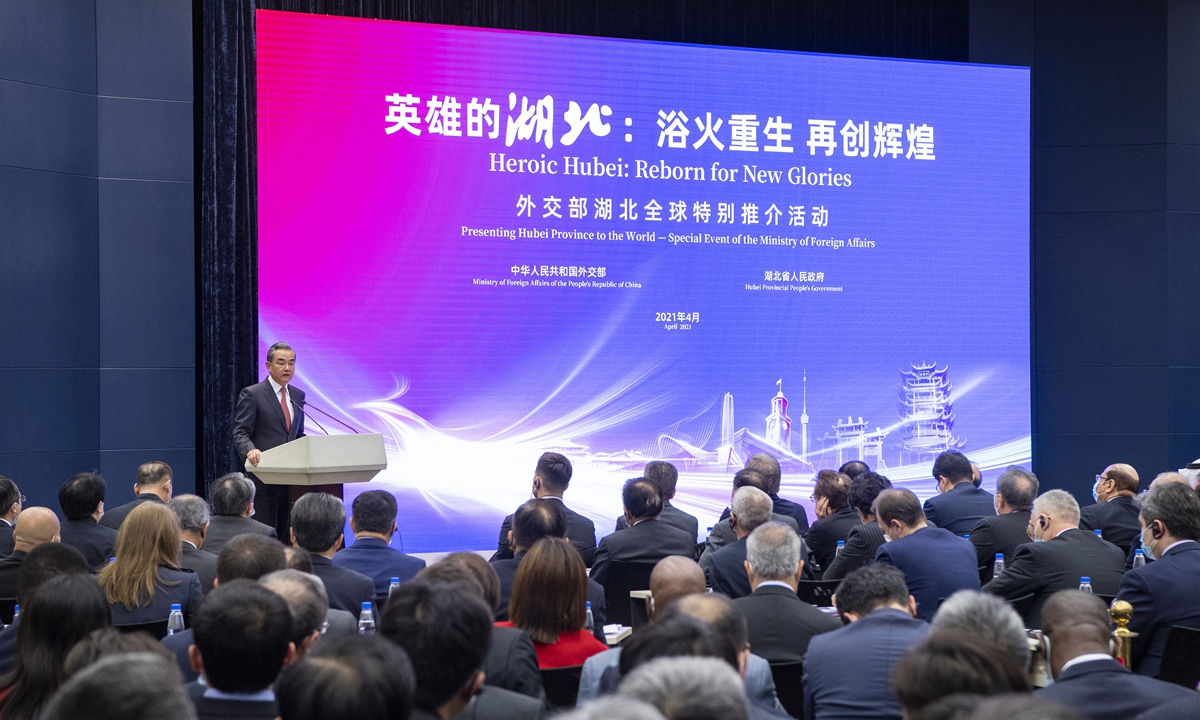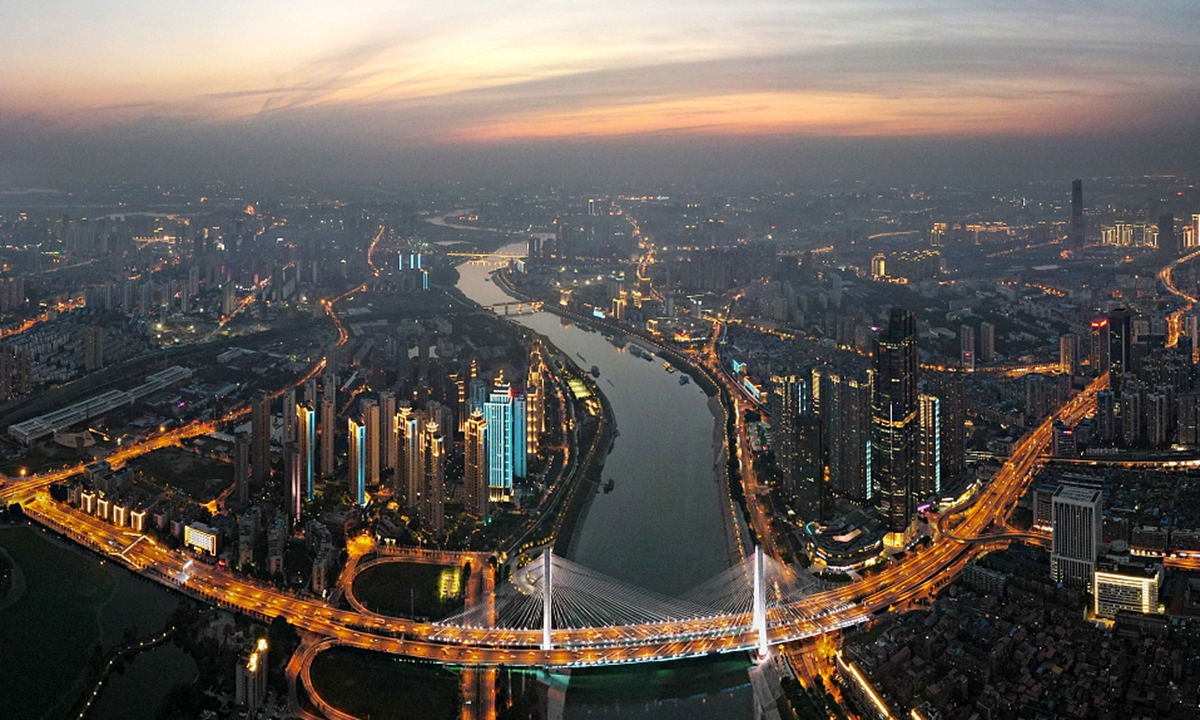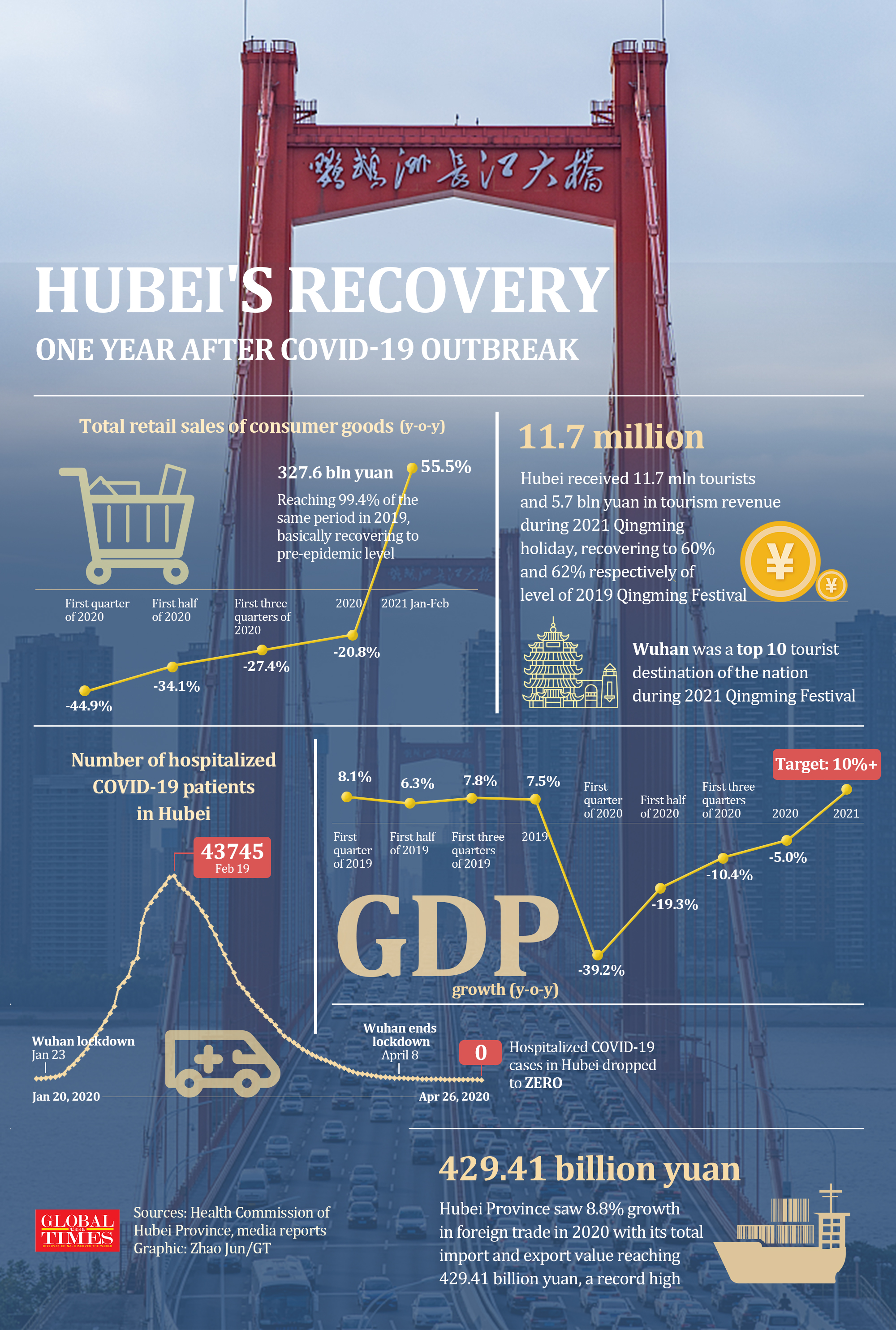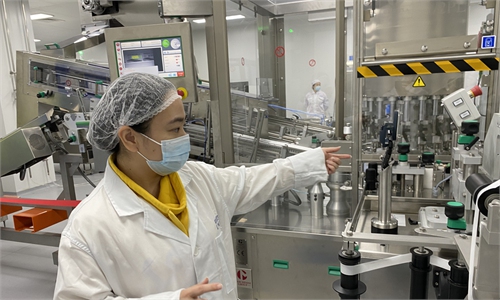Heroic Hubei showcased to world 1 year after reopening
Hubei economy for ’20 recovers 95% of pre-epidemic level: data

Chinese State Councilor and Foreign Minister Wang Yi speaks at a promotional event in Beijing on Monday held by the Chinese Foreign Ministry and Hubei provincial government to introduce Hubei Province to the world, its arduous journey fighting the epidemic and its strong recovery. Photo: cnsphoto

Wuhan Photo: VCG
One year after Hubei, the Chinese province hit hardest by the COVID-19 epidemic, reopened following months of strict lockdown in early 2020, China's Foreign Ministry and Hubei government held a promotional event in Beijing on Monday to introduce the province to the world, its arduous journey fighting the virus, and its strong recovery.
With the theme "Heroic Hubei: Reborn for New Glories," the event was organized by the Ministry of Foreign Affairs and the People's Government of Hubei Province.
Wang Yi, State Councilor and Foreign Minister, Ying?Yong, Secretary of Communist Party of China Hubei Provincial Committee, Hubei Governor Wang Xiaodong and Wang Zhonglin, Secretary of CPC Wuhan Committee, attended the event.
The event attracted the largest number of foreign diplomats and representatives in the history of the ministry, which shows people's acknowledgement of Hubei and Wuhan's accomplishment in fighting COVID-19, said Wang Yi.
Hubei's fight against COVID-19 in the past year marks the epitome of the country's fight, said Wang, noting that the province not only made great sacrifice to China's stanch over the virus, but also contributed to the world's fight against the pandemic.
He said they got support and assistance from many other countries; and China also offered help to other countries as the pandemic began to savage the world. "The unprecedented pandemic has let us know that our world is a shared community, where we share weal and woe," said Wang, urging the world to join hands to fight the virus.

Hubei's recovery one year after COVID-19 outbreak. Graphic: GT
A year's journey
Last Thursday marks the first anniversary of Wuhan's lockdown lift. A year on, not only has the pain caused by the epidemic been gradually fading among local people, they gathered what they learned from the pandemic and are ready to embrace a better life.
A resident surnamed Sun told the Global Times that he felt the city is full of youthful vigor and the locals are optimistic and energetic in welcoming every new day after the city reopened last April. "We have gone through the heavy haze", Sun said with pride.
When talking about their expectations of the city, several locals reached by the Global Times said they hoped Wuhan could upgrade to be one of the first-tier cities in China and have a promising future.
Yan Jing, whose hometown is Huanggang, Hubei Province, but works in Beijing, shared a video of the promotional event on her WeChat. "Only those who stayed in Hubei at the beginning of last year had mix feelings. Gratitude for those who came to help; fear for the virus, and worry for those who stayed in their posts during lockdown. Now look at other countries facing impact of the pandemic. I feel like we are living in a different world," said Yan.
Although the epidemic scar is one thing Hubei and Wuhan people are willing to leave behind, many Wuhan residents are still easily irritated at the mention of "Wuhan being labeled the culprit of the global pandemic."
The WHO-China joint expert team recently published a report about their investigation in China on virus origins, many Western media and politicians jumped out and hurled mud at Wuhan, chanting the old tune that the city is the origins of the coronavirus.
US Secretary of State Antony Blinken criticized China's handling of the COVID-19 pandemic in an interview Sunday on NBC's "Meet the Press," claiming that China's "failure" to cooperate in the early stages of the virus led to the situation's getting "out of hand."
A Wuhan doctor surnamed Zheng described such statement as "passing the buck." "The US is one of the first countries that evacuated its nationals from Wuhan in January. The world's biggest superpower with topnotch medical technique has enough time to prepare but yet got savaged by the pandemic two months later. Now it's blaming China?"
Huang Haixia, who has lived in Jiqing Street, Wuhan for years, asked, "why do some in the US keep claiming Wuhan is the origin of the coronavirus, but when we questioned its athletes coming to Wuhan for Military World Games in October 2019, the US dared not show any test results or health proof?" Huang said, noting that she believes the US must be hiding something, and that WHO experts should go to the US for coronavirus origins research.
Strong bounce back
At the promotional event, Wang Yi, along with Ying Yong and Wang Zhonglin, also highlighted the economic performance of Hubei Province last year, against the challenges posed by the pandemic.
The province had done a great job on economic development under the most difficult circumstance, as its economy has recovered about 95 percent compared with 2019, and trade volume even hit a record high.
According to official data, Hubei's GDP declined 39.2 percent year-on-year in the first quarter of 2020 due to the pandemic. However, with the successful handling of the pandemic, the economic activities have seen a stable recovery since the second quarter, and by the end of 2020, the province's GDP had rebounded to 95 percent of the level in 2019.
Ying Yong, Party chief of Hubei Province, said at the event that since the outbreak of the epidemic, the province put forward many measures to promote economic recovery, including ensuring the connection of upper and downstream industrial chains.
As a result, the economy in the province is experiencing fast growth as many sectors are seeing double-digit growth, according to Ying.
Dong Dengxin, director of the Financial Securities Institute at Wuhan University of Science and Technology, told the Global Times on Monday that with its geographical advantage in Central China, Hubei is the hub that connects the east and west of China.
"With China's plan on regional development, there will be more supportive policies during the 14th Five-Year Plan for Hubei's development, which will also provide favorable opportunities for foreign companies," Dong said.
In addition, the business environment in Hubei, especially Wuhan, has dramatically improved as the province has released many measures including talent cultivation and increasing investments in the R&D sector, Dong added.
"There are already several industries in Hubei that are in leading position in the world such as optical communication, biological science and automobiles, which have formed industrial clusters in the province," Dong said, adding that "with the improving business environment and favorable policies, foreign investment is expected to see a strong growth after the epidemic."

